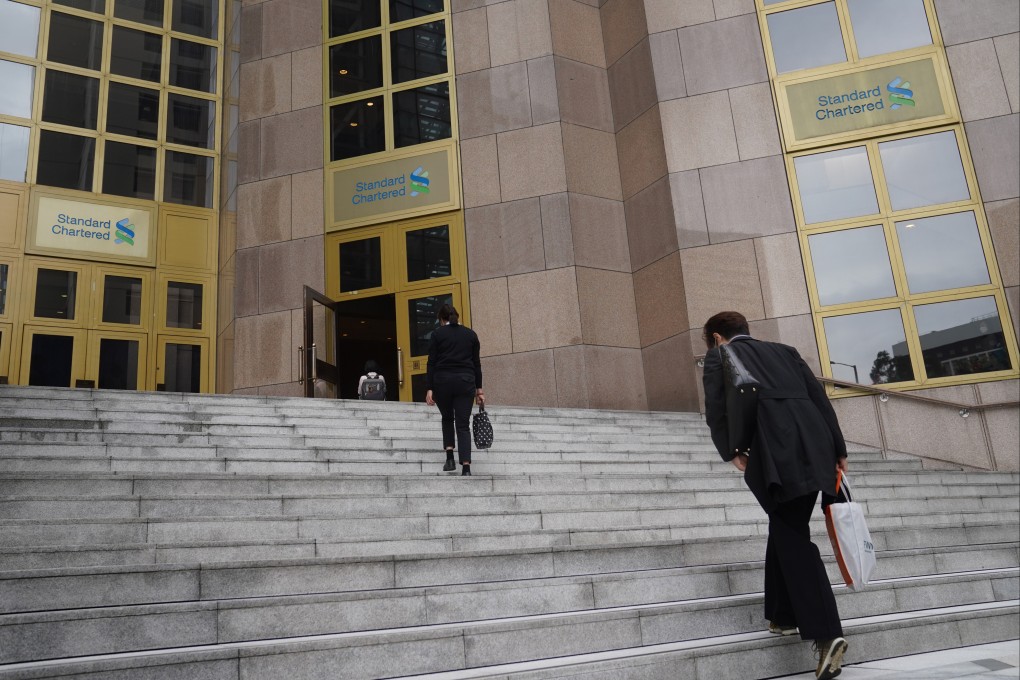Advertisement
Standard Chartered first-quarter profit more than doubles on economic rebound
- Pre-tax profit in the first quarter was US$1.4 billion, beating a consensus estimate of US$985 million
- Ongoing economic recovery to be ‘volatile and uneven’
Reading Time:3 minutes
Why you can trust SCMP

Standard Chartered, one of Hong Kong’s three currency-issuing lenders, said its profit more than doubled in the first quarter as economies in Asia and other parts of the world rebounded from a slowdown prompted by the coronavirus pandemic.
Like many of its rivals, the emerging markets-focused bank has been trying to keep its costs in line during a period of historically low interest rates. The bank is adopting more flexible working arrangements, allowing it to shed office space and further trim costs.
The London-based lender is also betting on rising incomes in the Greater Bay Area and other parts of Asia to offset pressure from lower rates. It is bulking up its business serving affluent and wealthy clients. The bank generates much of its revenue in Asia and counts Hong Kong as its largest market.
Advertisement
“Economic recovery advanced in many of our markets leading to improved transaction volumes and profitability,” Bill Winters, the Standard Chartered CEO, said in a statement. “Despite low interest rates, we expect our underlying momentum to lead to income growth in the second half of 2021.”
Despite ongoing fiscal stimulus and positive vaccine roll-outs, Standard Chartered warned it expected the global economic recovery to be “volatile and uneven”.
Advertisement
Advertisement
Select Voice
Select Speed
1.00x